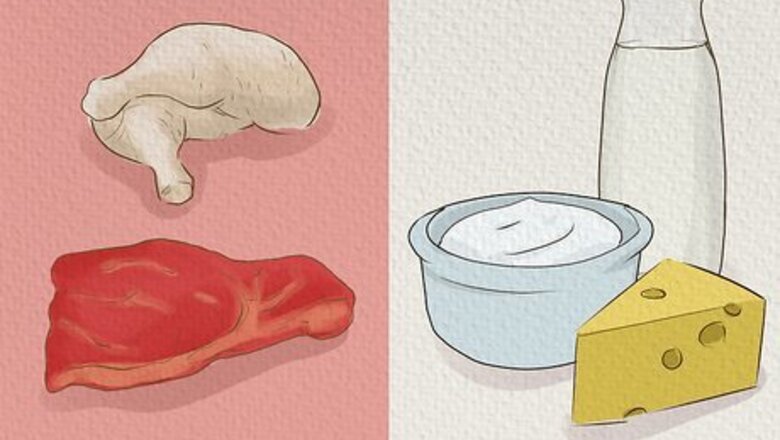
views
- Kosher kitchens separate meat and dairy according to Jewish customs. Separate appliances and cooking supplies are used for meat and dairy.
- All food in a kosher kitchen must be kosher per Jewish dietary laws, called “kashrut.” For instance, kosher meat can only come from certain animals.
- Some Jewish sects, like Orthodox Jews, keep kosher at all times. A few sects mainly keep kosher during holidays, like Passover.
Kosher Kitchens, Explained
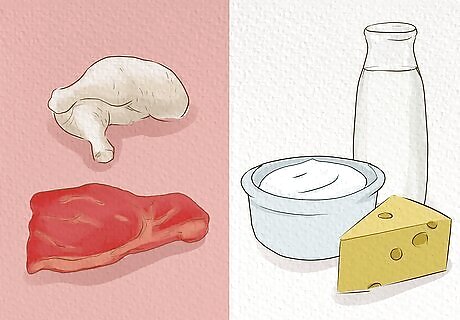
Kosher kitchens separate meat and dairy, per Jewish dietary laws. These dietary laws, known as kashrut, dictate that meat and dairy should never be prepared, cooked, or eaten together. Jewish households that abide by these laws will have separate dishes, utensils, mixers, ovens, toasters, sinks, and dishwashers for meat and dairy products. This ensures that meat and dairy products never come into contact with one another. When using a single stove, meat items are cooked on one side and dairy is cooked on the other. Individual kitchen sinks are split with a divider so that dairy dishes can be washed separately from meat dishes. In a pantry or refrigerator, dairy and meat can be stored together since they’re not being cooked or prepared there. However, they should be individually wrapped or packaged to keep them separate. At the dinner table, meat and dairy are never served at the same time, though they may sit side-by-side in separate trays in places where people aren’t eating, such as on a serving table. When transitioning between meat and dairy dishes, the dinner table is cleaned, the tablecloth is changed, and separate dishes and utensils are used. Any bread eaten with meat cannot be eaten with dairy, and vice versa. In some sects, such as Sephardic Judaism, observant Jews must wait at least six hours after eating meat before consuming dairy products, and vice versa.
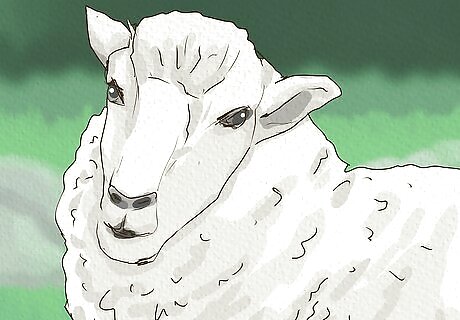
They can only contain foods that are considered kosher under Jewish law. In addition to requiring that meat and dairy be kept separate, Jewish dietary laws only allow products from specific kinds of animals, and only if those animals are slaughtered in a specific way. Certain breads, fruits, and vegetables are also forbidden, depending on how they are prepared. To be considered kosher, food must be prepared using kosher equipment and procedures, from start to finish. Meat and dairy must come from ruminant animals with split hooves such as cows, goats, sheep, and lambs—or from non-predatory, non-scavenging birds like chickens, turkeys, and quails. Meat from non-ruminant animals like pigs, rabbits, and squirrels is not allowed. Neither is meat from the hind part of an animal, like a sirloin or flank steak, or any meat from predatory or scavenging birds like eagles, vultures, and hawks. Animals must be slaughtered by a certified butcher called a “shochet,” who uses a long knife to slice the animal’s throat, severing its windpipe and esophagus, but not its spinal cord. The animal’s meat must be soaked in water to remove all traces of blood before cooking. Fish with scales and fins are allowed, such as tuna and salmon, but other water-dwelling animals like shrimp, frogs, or oysters are not kosher. Since fish is not considered “meat” under Jewish law, kosher fish can be prepared and eaten alongside dairy. Unprocessed grains, fruits, and vegetables are generally kosher as long as they are not prepared with shortening from non-kosher animals.
Why Have a Kosher Kitchen?
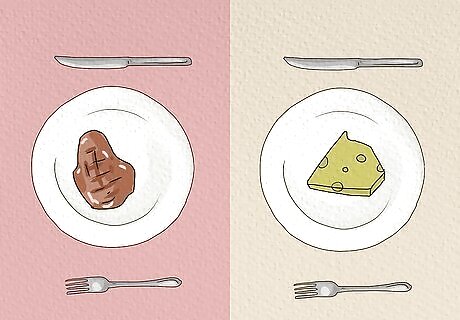
Kosher kitchens allow Jewish families to maintain a kosher diet at home. Most Orthodox Jews, for example, observe Jewish dietary laws very strictly. They eat kosher food year-round and may even buy their groceries from kosher supermarkets. And of course, they maintain kosher kitchens in their homes to ensure they abide by tradition at all times. Other Jewish sects, like Hasidic and ultra-Orthodox, also keep kosher at all times.

Some Jews use kosher kitchens to prepare food for special occasions. Conservative and Reform Jews, for instance, are not required to keep kosher. However, they may choose to serve traditional kosher dishes for Passover and other important Jewish holidays. Some prepare their kitchens for Passover by keeping meat and dairy separate and following other important rules. Per Jewish Law, food is not considered kosher unless it is prepared in a kosher kitchen. Some non-denominational Jews may also choose to keep kosher on special occasions.
How Kitchens are Made Kosher for Passover
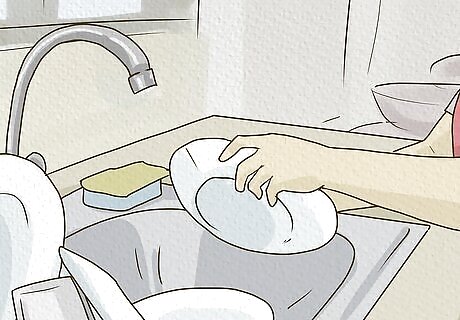
Every surface and item used in cooking is thoroughly cleaned. Two days before Passover, dishes, cups, pots, cutting boards, and utensils are thoroughly washed and dried. Stoves, countertops, oven interiors, sinks, backsplashes, tables, and other surfaces are scrubbed with dish soap and water and left to sit for 24 hours. The refrigerator is also cleaned and emptied of all items that won’t be used during Passover. Items that will be used are placed back in the fridge. Sponges, rags, and other items used for cleaning are washed and set aside until after Passover. A separate sponge is used during the holiday.
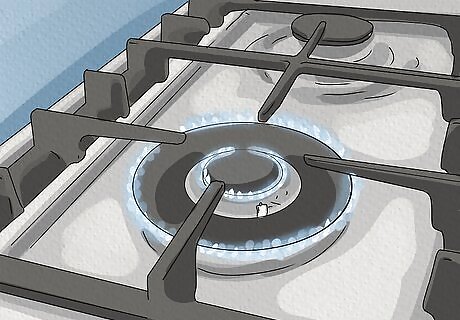
Heat is used to purify surfaces, utensils, and cooking supplies. This process is called “kashering,” which means “to make kosher.” This is done to remove “chametz”—traces of food made with grains that rise or ferment, such as bread made with yeast.. The kashering process is believed to purge items of these unkosher tastes. Metal items that have not come into contact with fire, such as dinner forks, or that have come into contact with water, such as soup pots or ladles, are immersed in boiling water in a process called “Hagalah.” Additional boiling water may be poured onto countertops, sinks, stoves, and other surfaces. Metal surfaces and items that have come into contact with fire and dry heat, such as baking pans and grills, are purified with heat from an oven or blow torch. This process is called “Libun.” Ovens may be purified with a self-cleaning, high-heat setting. Otherwise, they are cleaned with soap (or chemical oven cleaner) and boiling water.




















Comments
0 comment